The company is teaming up with the University of Murcia and the Autonomous University of Barcelona to provide end consumers with all the information they need to know about animal husbandry.
El Pozo Alimentación, together with its sister livestock company, Cefusa, are working with the University of Murcia and the Autonomous University of Barcelona on the ClearFarm project in order to scientifically measure the degree of welfare of farm animals so as to ensure the sustainable production of pigs and dairy cattle on a European scale.
This pioneering initiative aims to create a European reference platform to ensure animal welfare throughout the livestock production chain, providing information on animal welfare for both the members of the food chain itself and the end consumers.
During the second stage of the project, El Pozo Alimentación and Cefusa have furthered research and fine-tuned new procedures that allow both the state of health of the pigs on the farm and their welfare to be objectively measured throughout the whole production process. In this respect, two lines of work are being pursued with a view to achieving a more sustainable pig production. The first, based on the concept of precision livestock farming, aims to achieve real-time monitoring of animal welfare through the use of state-of-the-art electronic sensors. The second focuses on the development of a method to assess the absence of animal suffering by non-invasive analysis of physiological biomarkers of animal stress.
By feeding all the information that is gathered into a digital platform, the functionality and usefulness of both strategies will ultimately be tested and validated. The aim is that the digital platform, through the use of an appropriate algorithm and once in operation, will provide useful and understandable information for both the farmer and the consumer so as to simplify decision making.
This project, which started in 2019 and will run for four years, has received funding from the European Union’s Horizon 2020 research and innovation programme under grant agreement No. 862919.

